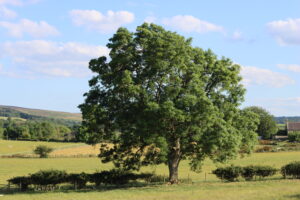Human impacts on biodiversity undermine ecosystem functioning
A new study has found human activity can alter biodiversity and ecosystem functioning in wetland areas, leading to environmental destruction.
Researchers studied the effects in 72 lakes across four large wetlands expanding across 3.7 million km in Brazil – the Amazon, Araguaia, Pantanal and Paraná.
The study, published in Nature Ecology and Evolution, shows how human activity changes the controls biodiversity has over wetland ‘multifunctionality’ – the diverse functions ecosystems provide.

Dr Pavel Kratina, Senior Lecturer in Ecology at Queen Mary University of London, said: ‘This is one of a few studies that demonstrate how human pressures compromise the functioning of wetlands through their negative impact on biodiversity. To our knowledge, this work presents the first empirical evidence of a large-scale positive relationship between aquatic biodiversity across multiple organismal groups and multifunctionality of wetlands.
‘This high-resolution dataset revealed strong and consistent associations between the diversity of multiple groups of aquatic organisms and wetland multifunctionality. These results underline the important role of species richness and functional diversity in driving functioning of Neotropical wetlands.’
Researchers examined how aquatic organisms control 11 ecosystem functions, including total phosphorous and nitrogen available in the water, ecosystem metabolism, microorganism abundance and variation in habitat complexity underwater.
The study also demonstrated how these controls change as wetlands differ in their human pressure, both directly and indirectly influencing the relationship between diversity and ecosystem functioning.
The Human Footprint (HFP) index was used to quantify human pressure, which incorporates different kinds of human activity, such as built environments, crop land, population density, night-time lights, railways, roads and navigable waterways.
Dr Kratina said: ‘We show a decline in species richness and functional diversity with increasing Human Footprint. Human Footprint index has a large direct negative effect on multifunctionality, but HFP also had indirect negative effects on the multifunctionality, mediated by declining species richness.’
Photo by James Park











